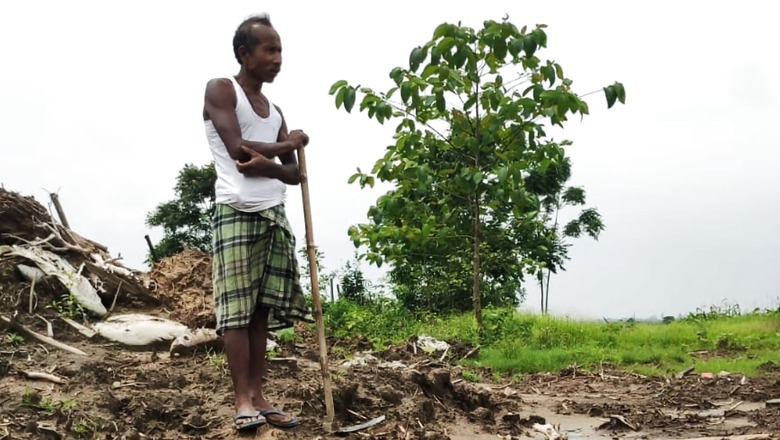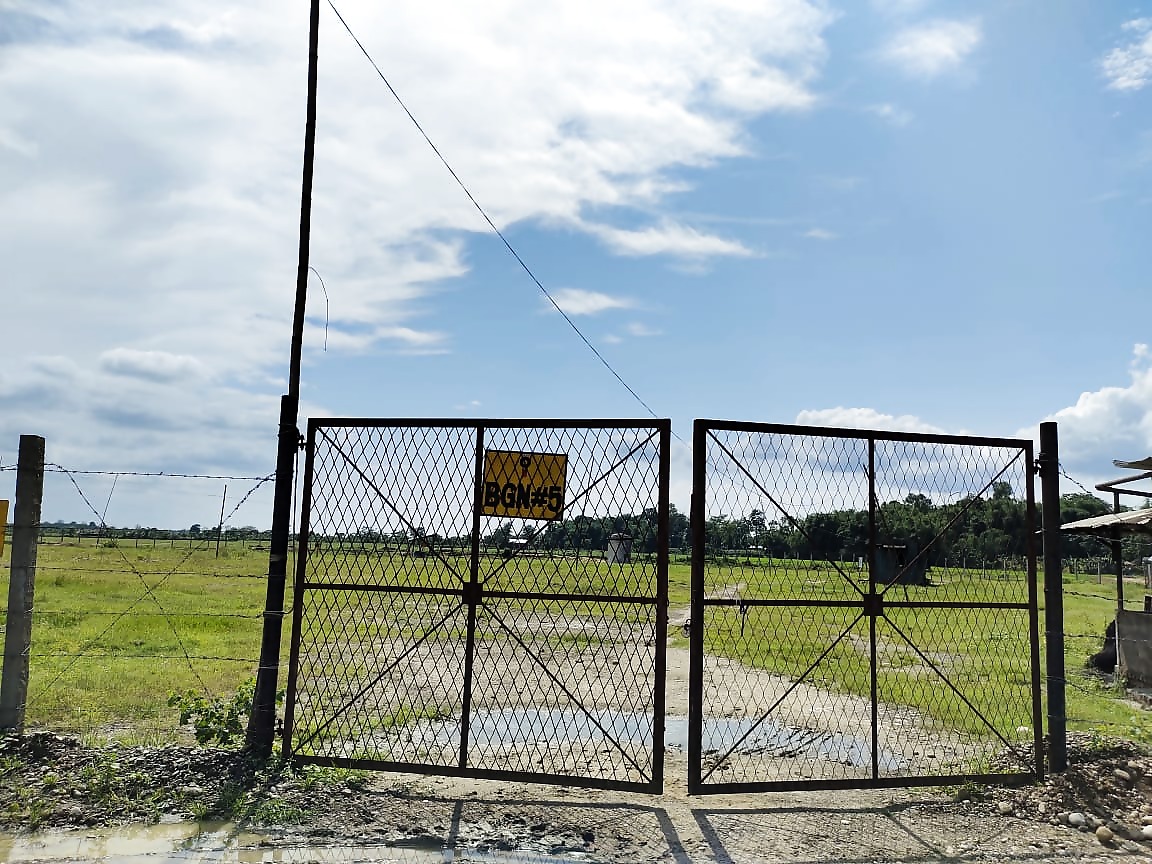
views
On June 9, 2020, the Baghjan oil field explosion and the subsequent fire shook the entire nation. Although for many the horror has subsided, but for a few people, the incident remains a fresh wound.
Families, who lost their homes, paddy fields, trees in the fire, which was followed after the explosion took place at the Baghjan-BGR-5 oil field in Tinsukia district, Assam, are still struggling to cope.
According to the Tinsukia district administration, at least 10,000 people have been displaced due to the raging fire. A part of the wetland already contaminated by oil condensate caught the fire, which killed many endangered animals and birds. It took around six months and a team of experts from Canada and Singapore for capping the well that caught fire.
By that time, more than 75 hectares and water bodies around the rig were burned spewing oil condensate. The Baghjan incident will be remembered as one of the longest running oil spill and blowout in India.
The Oil India Limited and the Tinsukia district administration drew the ire of the people for failing to live up to their duties of ensuring safety and security of people living nearby the oil production area. According to the reports, the company failed to take containment measures on time and an area of 3.8 sq kilometer remains heavily contaminated around BGN 5.

Notably, more than 10,000 people from about 10 nearby villages of Maguri Matapung wetlands depend on it for their livelihood. But as the oil spill brought threat to the lives of aquatic animals in the lake, the income of local fishermen was affected.
In the fire fight, three employees of Oil India and an engineer died. Two foreign engineers, who came to extinguish the fire, were also injured. The fire was finally extinguished on November 15, 2020 after 173 days of repeated failure.
Although the OIL managed the anger over the compensation for some time but the discontent is rising among locals who lost their home and source of income in the blowout.
Almost two years after the incident, News18 visited a few localities to know the ground reality.
Ritu Chandra Moran, a resident near the BGN 5, shared how his house was burnt down within minutes and his changed life afterwards, “Before the Baghjan fire, we had tea trees, coconut, bamboo, banana, orange and mango trees in our garden. The fire burned everything to the ground. I used to support my family and take care of the education of my children by selling our garden produce in the market. Now, it will probably take a long process to plant them, nurture them and produce crops… We are in very helpless situation. Oil India paid us Rs 20 lakh as compensation. The company told us in the district commissioner’s office that the Rs 20 lakh is only temporary settlement to build huts in a safer place until the fire was extinguished. They said they will conduct a survey and appropriate compensation will be paid to us.”
Another local resident, Manoj Hazarika, said, “It may take many years for Baghjan to return to its former state. I know that nature takes its own course. Nature has already healed 5% of the 100% damage and I am sure the remaining part will also be fulfilled but it is hard to say when… We are not anti-OIL or anti-government. But we have been living in the natural environment since childhood. And the Baghjan incident has completely destroyed the natural environment. There has been no cultivation for the last two years. There is fear, and a sense of uncertainty about the unseen future among the residents. OIL shouldn’t only work for the interest of production but also protect the eco system. I urge them to not think only about profit overlooking the eco sensitive zone of Dibru Saikhowa National park.”
Many have also complained about the scarcity of drinking water following the devastation. A woman resident said whenever they try to store drinking water a layer of oil appears on it. Many have complained about stomach-ache after drinking the contaminated water.
The national green tribunal had ordered the Tinsukia district administration to make two main categories of victims depending on the damage to their life and property and subsequently ordered the OIL to compensate them with Rs 25 lakh and Rs 15 lakh.
According to Rameswar Teli, Union minister of state for petroleum and natural gas, the OIL spent Rs 147.92 crore as compensation and relief to the residents. Later, the NGT committee was challenged in the Supreme Court citing that the managing director of OIL, which itself is a defaulter in the incident, is a member of it.
On August 23, 2021, the apex court bench of Justices DY Chandrachud and MR Shah asked to reconstitute the committee headed by Justice BP Kataky to assess the compensation and restitution of the damage done to the environment due to the fire. The NGT case was a result of a petition by Kolkata-based environmentalist Bonani Kakkar who was unhappy with the NGT’s final order and approached the Supreme Court. The committee formed after the SC order has surveyed the area for months and suggested restorative measures.
The residents since last year have been observing May 27 as the black day over the fire incident and have been seeking justice. They have been awaiting the SC verdict hoping to get justice and proper settlement.
(With inputs from Upasona Baruah Goswami, Tinsukia)
Read all the Latest India News here
















Comments
0 comment